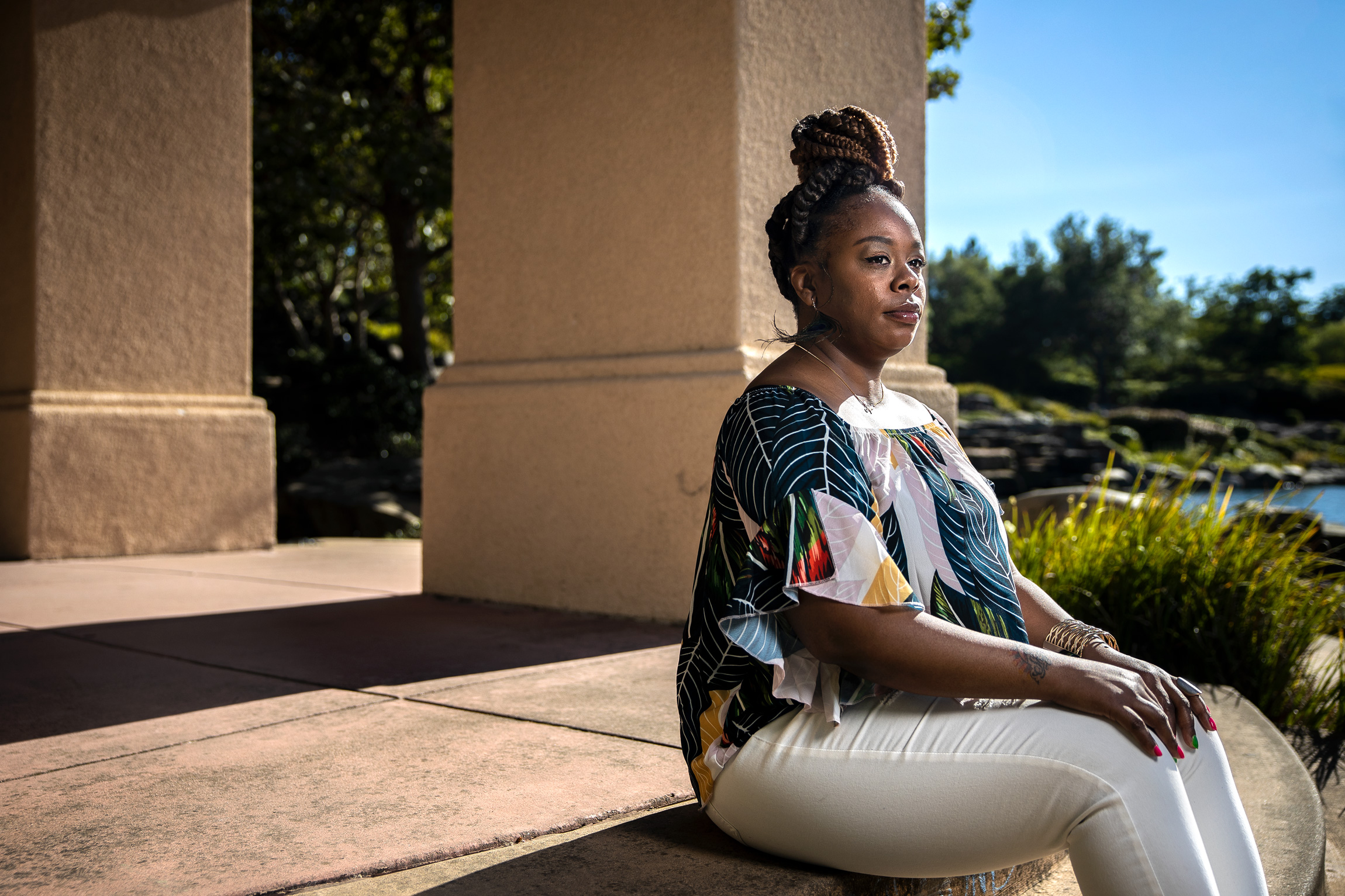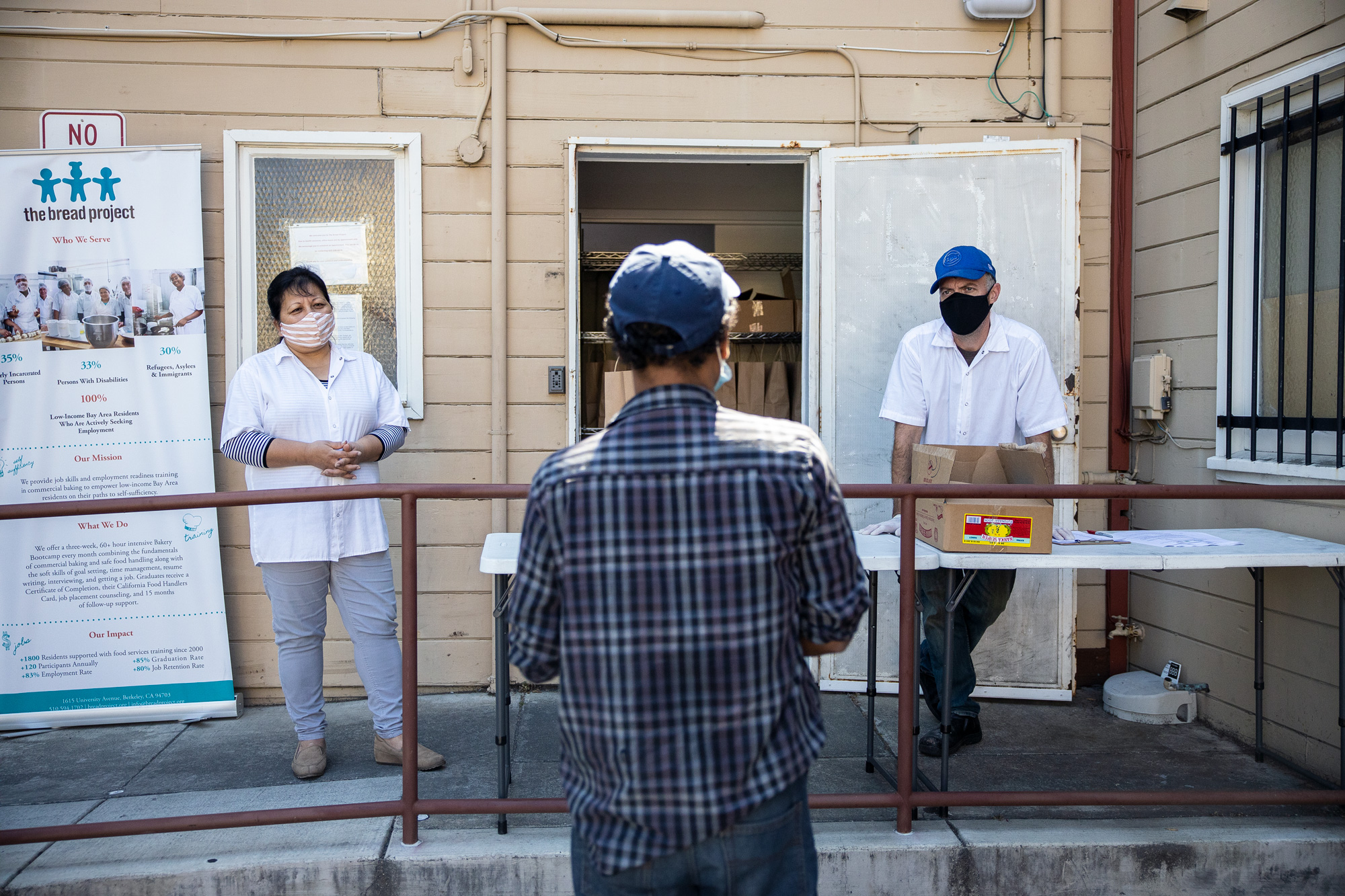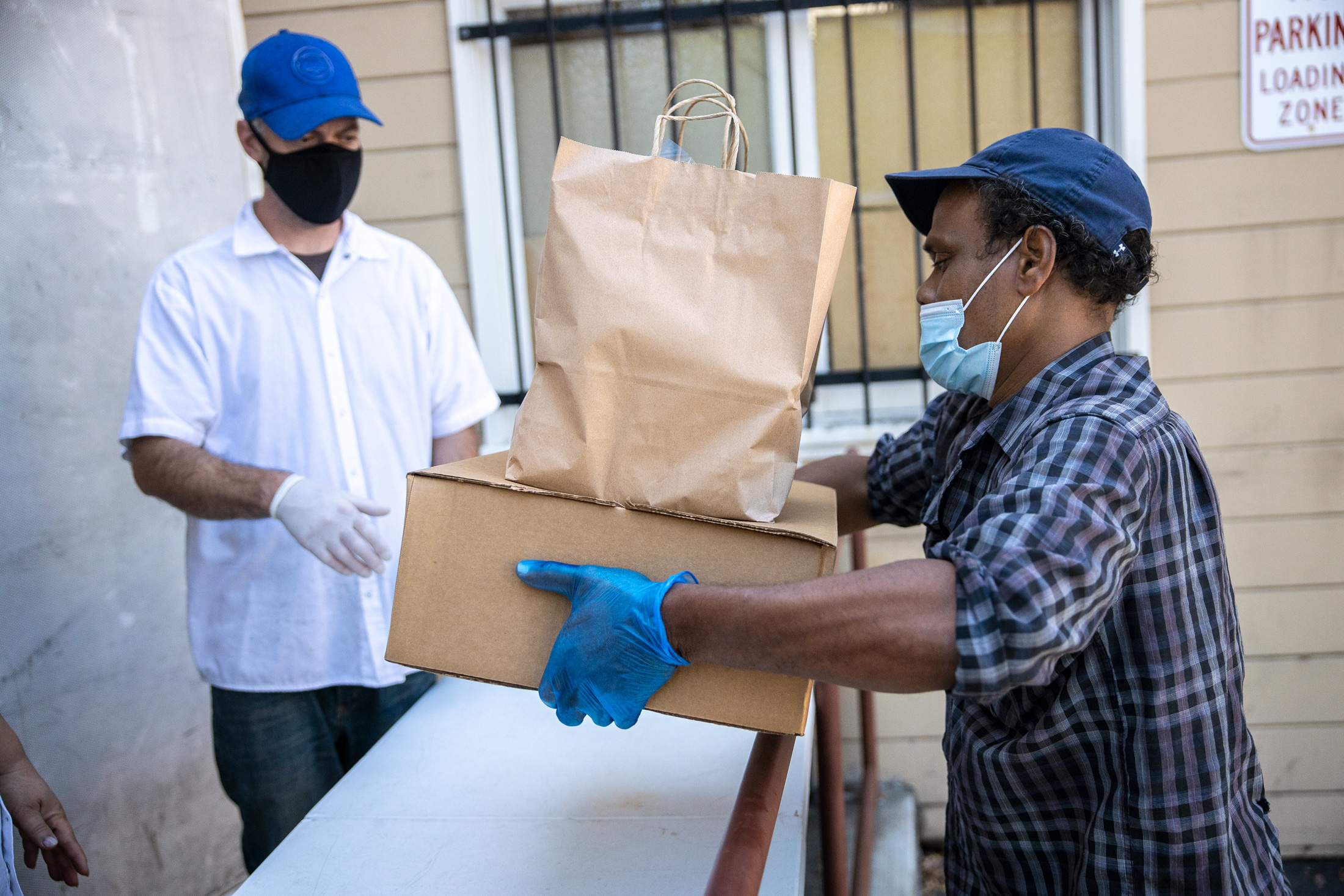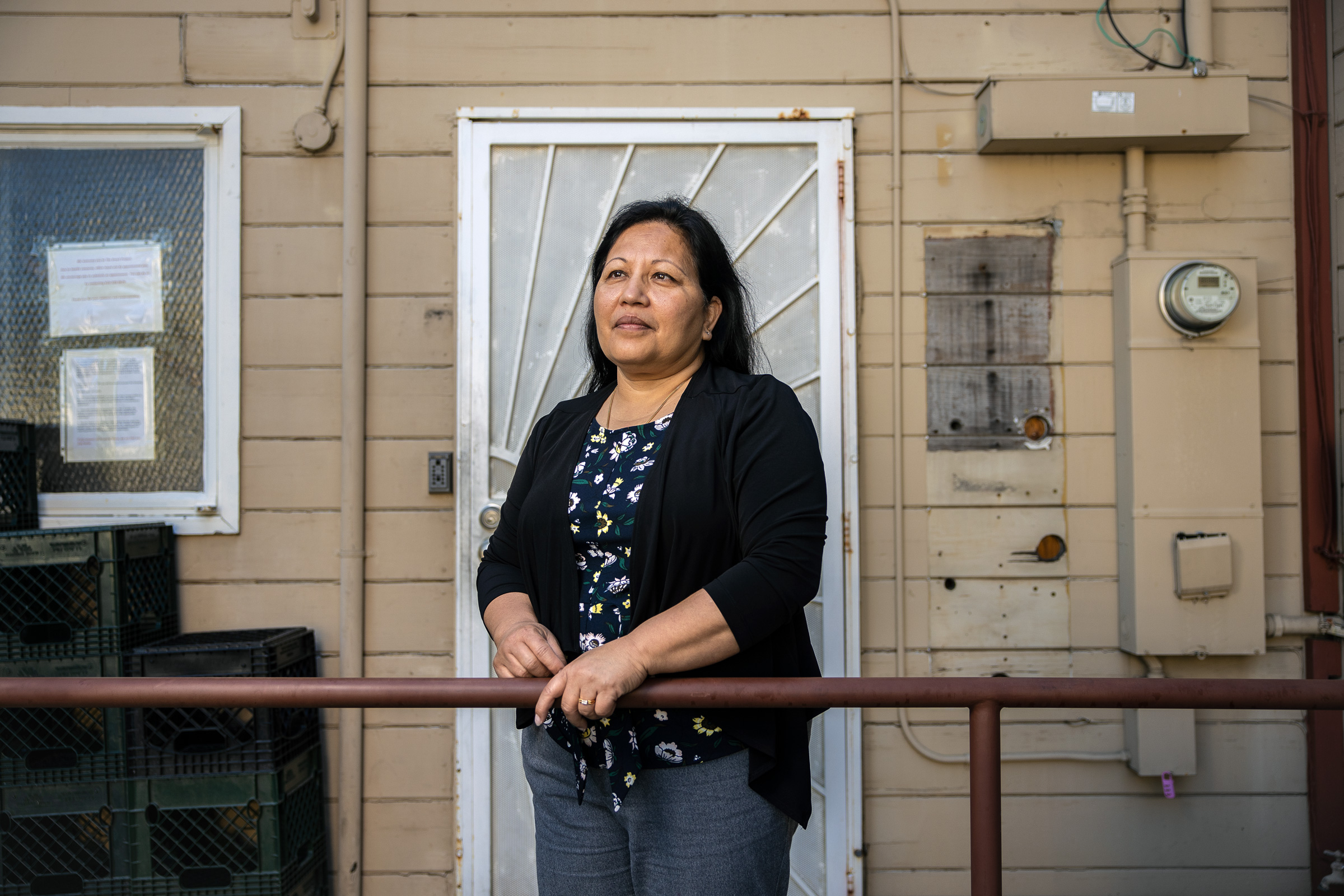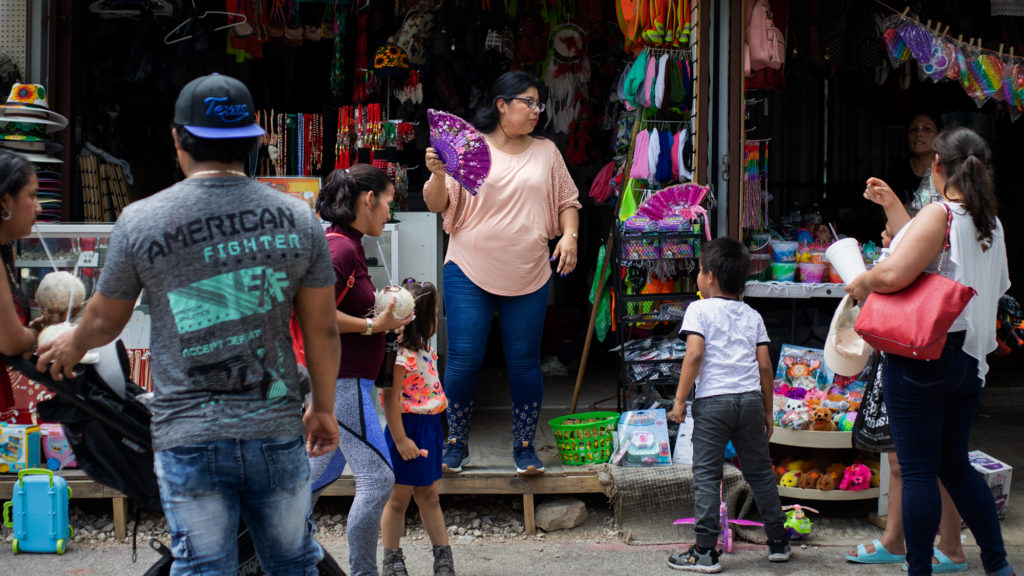Nghia Twine knew she liked cooking, but it was a training course at The Bread Project that helped her launch a career. “I didn’t know I loved baking until I started learning the science of it, weighing everything and seeing how things turn out,” she says.
A few years ago, Twine enrolled in “bakery bootcamp” at The Bread Project, a nonprofit in Berkeley, California, that offers low-income youth and adults the baking skills necessary to secure jobs in commercial kitchens. Since the organization’s founding in 1999, more than 2,000 graduates — including immigrants living in the Bay Area, as well as formerly incarcerated individuals — have completed the four-week bootcamp. More than 80 percent of the program’s graduates found jobs as a result.
The hands-on training enabled Twine to become pastry chef at a dine-in movie theater in San Ramon called THE LOT, where she baked fresh croissants, scones, and desserts — and began dreaming of someday owning her own business.
Then in March, the pandemic dealt a huge blow to the restaurant industry. According to the National Restaurant Association, three million food-service jobs were cut in the pandemic’s first month alone, with the industry losing some $25 billion in sales. THE LOT shut down its bakery, and Twine was suddenly laid off. The same happened to more than 60 percent of The Bread Project’s graduates.
“When we realized that the pandemic numbers were going up, we knew that this would be really bad,” says Usha Gongal, executive director of The Bread Project.
In March, the organization suspended its bakery bootcamps, and staff began working remotely, assessing how they could support graduates through the pandemic while restarting programs for future students. This included an overhaul of the bootcamp curriculum to better prepare graduates in the midst of an unprecedented economic crisis.
“How you tackle this pandemic is the question,” says Gongal. “We thought, ‘Let’s take this in a positive way, and make our systems stronger on the inside.’”
The Bread Project will extend bakery bootcamp from four to eight weeks and expand the type of training it provides, adding food prep and other kitchen skills that are valuable across the industry. The revamped bootcamp, which kicks off September 21, will also place greater emphasis on “soft skills,” such as resumé building, job interviewing, and networking.
“If we give more of a varied training, instead of just focusing strictly on baking, then we’ll be giving our graduates more opportunities once they get out there,” says Gram Gould, an instructor for The Bread Project.
In rethinking its focus, The Bread Project also took time to consider who it serves and where the need is greatest. Going forward, they decided, their training programs will cater exclusively to formerly incarcerated individuals, 27 percent of whom nationwide are unemployed, according to the Prison Policy Initiative.
In California, Governor Gavin Newsom recently announced that 8,000 inmates will be released by the end of August in response to several coronavirus outbreaks within state prisons.
For many prison reform advocates, this is a step in the right direction to reduce the state’s high incarceration rate. But newly released inmates will reenter a deeply troubled economy with fewer job opportunities and a formidable pandemic impacting every aspect of daily life.
The staff at The Bread Project hope they can carve out new pathways of opportunity for former prisoners and welcome many of these formerly incarcerated individuals into their community of graduates. “If someone’s putting their trust in us coming out of incarceration,” says Gould, “then we have to be able to deliver.”
The Bread Project is certainly not the only nonprofit forced to shuffle its programs in the wake of COVID-19. “Everyone is struggling in a different way right now,” says Rick Cohen, chief operating officer of the National Council of Nonprofits, based in Washington D.C. “A lot of [nonprofits] are looking at their programs to see if they need to deliver them in a different way.”
Usha Gongal and Gram Gould meet graduates of The Bread Project every other week to distribute food and sanitation supplies. Sixty percent of The Bread Project’s graduates were laid off in the wake of the pandemic. [Photo by Martin do Nascimento]
Like the restaurant industry, the nonprofit sector has also cut jobs during the pandemic — 1.6 million, according to data from Johns Hopkins University. Surveys show charitable giving is down compared to last year, and that 20 percent of donors plan to pause giving until the economy recovers.
According to Gongal, The Bread Project’s corporate sponsorships have decreased by anywhere from 20 to 40 percent. Luckily, the nonprofit was able to retain its small staff, thanks to continued support from donors and a federal Paycheck Protection Program loan of $91,000.
These funds have enabled the nonprofit to keep the lights on as it prepares to restart in-person training (with reduced class size). But the staff also found ways to actively serve its community in the interim.
In The Bread Project’s commercial kitchen, Gould bakes 80 loaves of bread every other week to donate to the nearby Multicultural Institute, which runs a food drive to support day laborers in the San Francisco Bay Area during the pandemic.
Gongal, who graduated from the program herself seven years ago after emigrating to the Bay Area from Nepal, has also found it important to look out for former students. With financial support from the San Francisco-based nonprofit Tipping Point Community, The Bread Project put together care packages for bootcamp graduates. These boxes included grains, fruits, vegetables, and sanitation items, like toilet paper and hand sanitizer. Throughout the spring and summer, The Bread Project distributed more than 400 packages, while also offering resumé workshops to graduates.
“I thought that this is a good time for us to help our community and students,” Gongal says.
Usha Gongal, executive director of The Bread Project, stands by the back entrance to TBP’s offices and training kitchen. The main entrance off of University Ave. has been closed since the onset of the COVID-19 pandemic in March. [Photo by Martin do Nascimento]
Of course, these are temporary solutions until bakery bootcamps resume. Even then, Gongal knows it might be a long process for both the nonprofit and restaurant industries to recover from the current pandemic. “We are doing whatever we can during this time,” she says.
Meanwhile, Twine is still looking for work. No small endeavor, as her son starts middle school this month and she generally feels it would be unsafe to work in a service-industry job given the ongoing spread of coronavirus in California and elsewhere.
But she keeps on baking. She recently made a cake for her mother’s birthday, and she’s been crafting her own cupcake recipes. She’s applied to dozens of jobs in the meantime, from bakery positions to delivery jobs.
“I’m hopeful I’m going to find something,” she says. “I’m just trying to get back to work as soon as possible.”

